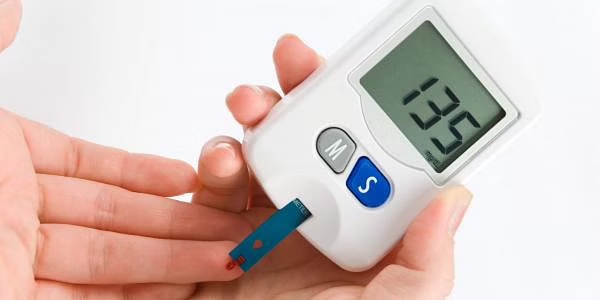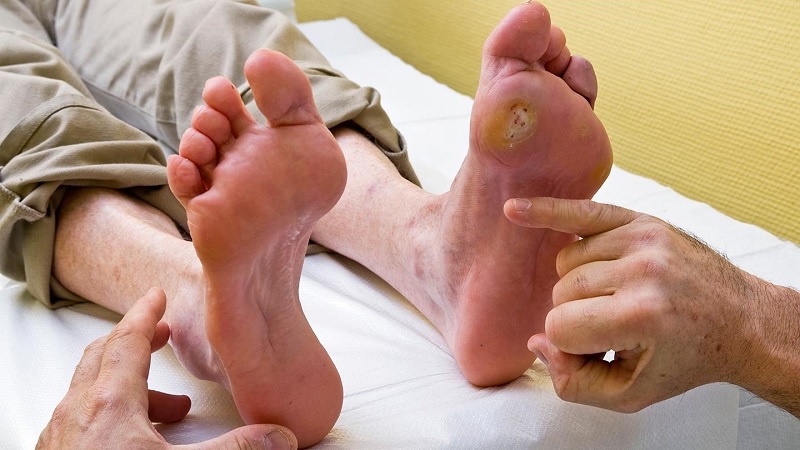Healthbeauty123.com – Diabetes sores can occur in people who have difficult-to-control diabetes or who have certain skin problems. The best way to treat diabetic sores is to prevent them by keeping your blood sugar levels under control. You can prevent diabetes sores by wearing comfortable shoes and not rubbing your feet too much. Also, it is important to avoid friction between your feet and your clothing. A bandage can help protect your sores.
Diabetes Wound Care Tips
People with diabetes are more susceptible to bacterial skin infections, including eyelid sties, nail infections, and carbuncles. These infections are often deep in the skin, and the area is hot, red, and painful. Treatments for diabetes sores typically include taking antibiotics. In some cases, the sore may be resistant to these drugs. But even when these treatments fail, you can take steps to prevent diabetic sores.
A person with diabetes is more likely to develop fungal infections. If these are untreated, they can cause dry skin and fissures. In addition, they can form ulcers. Most of these sores occur on the soles of the feet, although they can also appear on the face. In severe cases, the ulcers spread over the ankles, so it is important to keep your skin moisturized. If you have any of these symptoms, you should consult your doctor to ensure that you do not have any other conditions.

There is no known cure for diabetes sores, but you can learn how to treat them. Your doctor will prescribe you some medications to lower your blood glucose. In some cases, the sores will disappear on their own without treatment. If you have diabetes and are experiencing them, you can consult your physician to learn more about treatment options. Your doctor will be able to prescribe the right medications for you. The most important part of treating the disease is to get your glucose under control.
Treating Diabetic Wounds Properly
Your doctor can prescribe antibiotics and prescribe you a special plaster to protect the affected area. Despite the pain, diabetes sores can be painful. If you have diabetes, you should visit your doctor as soon as possible. He or she can prescribe you the right medication for your condition. During the treatment, your doctor will assess your condition and prescribe medication. Then you can decide how to treat your diabetes sores. Once the sores are healed, you can start your treatments.
If you have diabetes, you should consult your doctor to treat them. The first step in treating the disease is reducing the amount of sugar in your blood. Using medicine that lowers your blood glucose will help you heal the infection. If you have a high blood glucose level, you should consult your doctor immediately. This drug will help you reduce the risk of developing ulcers. You should avoid touching the affected area as well as wear socks.

In addition to treating the sores, you should also take good care of the skin of your feet. Your doctor will help you avoid the development of a new ulcer. You should check your feet daily for cracks and irritation. Once you find an ulcer, you should contact a healthcare provider. The doctor will give you treatment options and help you learn how to care for the sores at home. In many cases, the treatment will be quite simple and you will be able to avoid hospitalization.
Identifying Wounds and Their Causes
If you suffer from diabetes, you must consult a physician right away. Your doctor will be able to identify the sores, as well as the causes. If you have diabetes, you should be able to find a doctor who will help you treat the sores. If you have a blood sugar problem, you should be screened for diabetic sores. If you have high blood sugar, you should consider visiting a clinic.

Besides treating the sores, it is important to take care of your feet. If you have poor foot care, your feet can be infected with bacteria and lead to sepsis. Your doctor will show you how to properly care for your feet and give you advice on diabetes wound prevention. Your doctor will also explain how to keep your sores clean so you can reduce the risk of bacterial infections. Sores can be a serious problem for you and your family, so be sure to talk to your doctor right away.
Reference:






